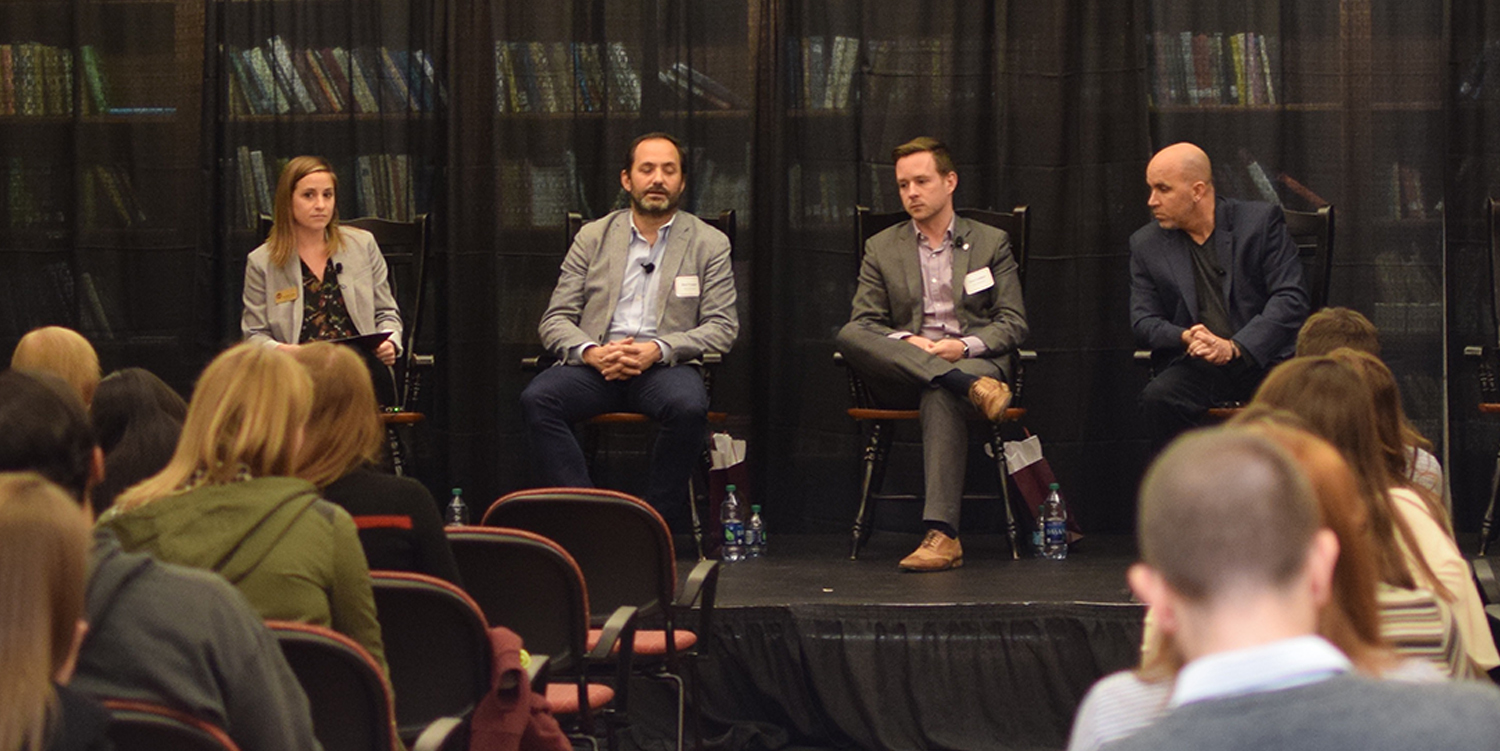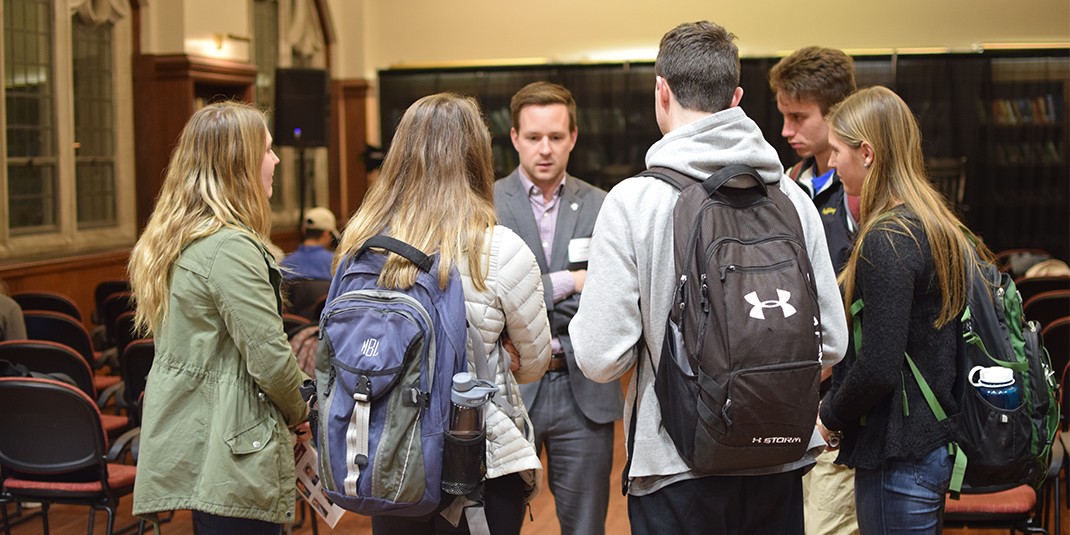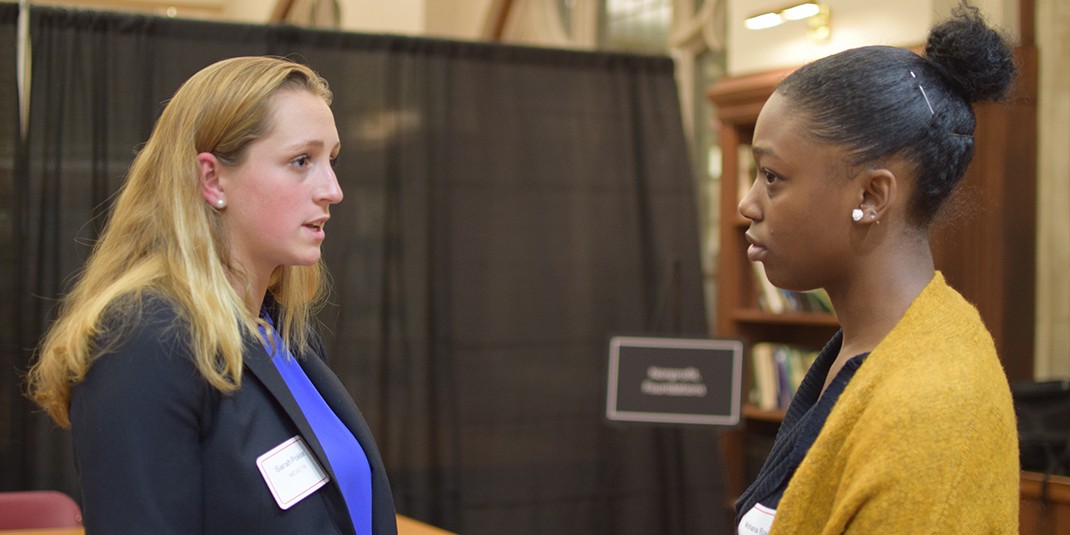“If you’re interested in making a social impact,” said David Jasso, “there’s an avenue to do that.”
Jasso ’20 was one of about 50 Boston College undergrads to gather in the elegant Fulton Honors Library last month, the room lined with books and graced with vaulted stained-glass windows overlooking the Carroll School atrium. In business-casual threads, the students milled around tall cocktail tables, munched on brownies and blondie bars, and peppered upperclassmen and young alumni with questions about their recent internships and new jobs—all aimed at changing the world for the better.
The occasion was Career Paths with Social Impact, a networking and panel event co-sponsored by the Edmund H. Shea Jr. Center for Entrepreneurship and Managing for Social Impact and the Public Good, an interdisciplinary co-concentration and minor offered by the Carroll School of Management and the Morrissey College of Arts and Sciences, respectively. What are the avenues open to budding leaders and managers who want to make a difference? That’s what the students came to find out.
For the first portion of the evening, they mingled and met informally with a scattering of their peers, identified by nametags, who had internship experiences to share.
“Tech doesn’t just exist in a box… it can be used for good in the world.”
To start with the resident Eagle, Rory Cuddyer left the Heights in 2011 with a degree in English and Philosophy and a plan to attend law school. But after working for a year as a paralegal, “I woke up every morning with a pit in my stomach,” he said. “That’s when you know it’s time to leave that job.” A volunteer stint on the U.S. Senate campaign of Ed Markey, Morrissey College ’68, J.D. ’72, led to a job on Marty Walsh’s campaign for mayor of Boston. That in turn led to a position as the city’s “Startup Czar,” a liaison to the local tech and entrepreneurship scenes.
In June, Cuddyer was promoted to chief of staff for the Environment, Energy, and Open Space Cabinet. He’s thrown himself headlong into the city’s efforts to become carbon neutral by 2050. “We’ve got to take concrete, actionable steps” on resiliency, Cuddyer said, citing a flood barrier under discussion that might cost billions of dollars, but would protect tens of billions in assets and businesses, not to mention hundreds of thousands of residents.
The Brit on the panel, Nick Propper began his career in the 1990s as a buyer for a London department store; today he is the COO of New York–based Porter Novelli, a PR and marketing firm that specializes in corporate social responsibility. At times, he said, doing the right thing has meant turning down business. When a fast-food chain wanted to update its image by highlighting a new salad, Propper pointed out that “most of your menu still exceeds the recommended daily allowance of everything” and suggested they spend the money on changing their practices instead of peddling spin.
Patrick L. Kennedy, Morrissey College ’99, is a writer in Boston and the co-author of Bricklayer Bill: The Untold Story of the Workingman’s Boston Marathon.





